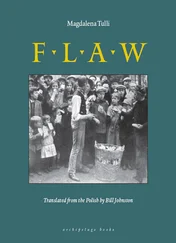Magdalena Tulli - In Red
Здесь есть возможность читать онлайн «Magdalena Tulli - In Red» весь текст электронной книги совершенно бесплатно (целиком полную версию без сокращений). В некоторых случаях можно слушать аудио, скачать через торрент в формате fb2 и присутствует краткое содержание. Год выпуска: 2011, Издательство: Archipelago Books, Жанр: Современная проза, на английском языке. Описание произведения, (предисловие) а так же отзывы посетителей доступны на портале библиотеки ЛибКат.
- Название:In Red
- Автор:
- Издательство:Archipelago Books
- Жанр:
- Год:2011
- ISBN:нет данных
- Рейтинг книги:3 / 5. Голосов: 1
-
Избранное:Добавить в избранное
- Отзывы:
-
Ваша оценка:
- 60
- 1
- 2
- 3
- 4
- 5
In Red: краткое содержание, описание и аннотация
Предлагаем к чтению аннотацию, описание, краткое содержание или предисловие (зависит от того, что написал сам автор книги «In Red»). Если вы не нашли необходимую информацию о книге — напишите в комментариях, мы постараемся отыскать её.
In this inventive novel, Magdalena Tulli creates a world that is unreal, yet strangely familiar and utterly convincing. Set in a mythical fourth partition of Poland,
is full of haunting descriptions of the town and its inhabitants; its power lies in Tulli's evocative, almost hallucinatory use of language.
In Red — читать онлайн бесплатно полную книгу (весь текст) целиком
Ниже представлен текст книги, разбитый по страницам. Система сохранения места последней прочитанной страницы, позволяет с удобством читать онлайн бесплатно книгу «In Red», без необходимости каждый раз заново искать на чём Вы остановились. Поставьте закладку, и сможете в любой момент перейти на страницу, на которой закончили чтение.
Интервал:
Закладка:
A few yards from the station his bald head was set about with clubs; the trunk opened and underwear spilled out onto the street, where it was later trampled underfoot by the stretcher bearers.
Adela took refuge in the orphanage. She worked there beyond her strength, scrubbing kettles and hauling vats right up till her time. The boys made fun of the pregnant woman, stuffing pillows under their shirts. They stole sugar and peed in the laundry tub. Every morning they would line up in two rows in the courtyard. Drawn up stiff as recruits, their heads completely shaven, they would rest their bloodshot eyes on the prewar sergeant major of the Stitchings uhlans, and if necessary, in silence they would play leapfrog till they dropped.
By night the walls would be bursting from the clamor of bad thoughts. Insomnia spread through the orphanage like an infectious disease. By the red glow from the half-open doors of the stoves they killed time by throwing knives into the floorboards. The gate would open for those who had reached a sufficient age. They would leave and merge into the crowd, a red glint in their eye.
The sky would cover with clouds.
“Those are snow clouds,” the housewives jabbered. Just in case, they hurried to make sure their windows were snug. But what snow could there be, how could there suddenly be snow in that perpetual heat?
In the meantime the negatives stolen from the Argentine were passed from hand to hand, acquiring the traces of greasy fingers.
“For he’s a jolly good fellow!” they sang at the tavern, tossing the pharmacist’s boy all the way up to the ceiling. “And so say all of us!”
Depressed at having been sacked for drinking some of the surgical spirit, the pharmacist’s boy felt some consolation. In the negatives every little store could be recognized. In some of them the semitransparent, incorporeal figure of a shopkeeper would hover with folded arms in a doorway. The human eye is fallible and can easily be misled by appearances; negatives see more clearly. If the door frame and inscription on the window showed through his body, what on earth could this mean?
“It’s obvious,” the men with metal-tipped canes would say as they strolled down the street. “Negatives don’t lie.”
They made chalk marks on the wall so that at the hour when accounts would be settled they would be led to the right addresses. Time after time there came the sound of breaking glass, and twisted shop signs would crash to the sidewalk. It started at the pharmacy but did not end there. By evening they were stomping through flour spilled from ripped-open sacks as they carried off loops of sausage under their arms.
Merchants locked themselves in their storerooms along with their wives and children, barricading the door, so as to wait out the worst and then simply flee — to the port or the train station. But what port were they talking about! They must have dreamed it. See — there was nothing but a boarded-up harbor building, the narrowest of jetties with a dilapidated bench at the end, over which a hurricane lamp hanging from a pole was lit after lunch and put out come what may after supper. By the landing stage a peeling fishing boat rocked on the waves, its skipper afraid to take it out to sea. A real ship could surely only enter this harbor by mistake. And what kind of train station was that, its ticket offices bolted shut, the chintz curtains drawn from inside, with scraps of timetables blowing about the waiting room by the unlit stove. With handcars rusting in the siding, and the stationmaster’s hens pattering about on a platform overgrown with weeds that were already coated with hoarfrost. A thin film of ice on the surface of puddles, the first snowflakes swirling in the air.
On the day of the annual festival on the town hall square, beneath the Chinese lanterns hung out by the firemen, the brass band struck up. Hungry children biting on rock-hard gingerbreads got in the way of the dancers. Paper streamers flew overhead, wrapping around people’s necks with a rustle, then ending underfoot, torn to pieces.
Rauch, wearing a black tailcoat, immediately after an early lunch had himself carried into the theater to supervise preparations for the gala show in person. But he didn’t even make it into the foyer. Both the front and the back of the building were being picketed by vigilantes gripping metal-tipped canes, one or another of them wearing a cocked hat from the theater’s prop room, a false mustache, and carrying a halberd.
“No passage,” they said.
“Who are these people? Where did they come from?” Rauch exclaimed, pushing them away with his hands.
But the porters had already put the armchair down on the sidewalk, and Max Fiff appeared next to it, the Slotzki factory emblem on his sleeve, a black pointer at his heel.
“Gala’s off, Mr. Rauch,” he said. He smashed the glass of the display case with his metal-tipped cane and tore up the photos. The wind carried the shreds over the street then dropped them among the trampled streamers. “It’s time to think of a new repertoire, the old one is rotten, it’s starting to stink. Your theater is polluting pure spring water. There’s no truth other than the truth of harmony! Us, if need be we’ll take a sharp knife and rip the truth out of people’s guts.”
“What are you planning to put on, sir, if I may ask?” Rauch responded, describing a circle with his hands that included Max Fiff’s people loitering about with their halberds. “Truth! Harmony! Sheer kitsch. First of all a good ear is what’s needed.”
“Take the chair away,” snapped Max Fiff, jabbing at the porters with the tip of his cane. “And I don’t want to see you here again. Quick march!”
The halberdiers sang in hoarse tuneless voices. From the direction of Factory Street standards began to arrive bearing the Slotzki emblem in a circle that was steeped in bloody red. Amid the gray walls the red glowed like embers in ash. The wind carried the echoes of the choral songs after their waves had already broken against the long rows of apartment buildings.
The Gypsy musicians hid their fiddles under their cloaks and fled as fast as their legs would carry them. One after another they bumped into the French-horn player from the brass band, who was hurrying in the opposite direction, staggering under the weight of his large black case. Some people blocked their path as they ran and dragged them into gateways. Twisting their arms back, they checked whether the musicians had a pulse.
The crowd that had gathered on the market square broke down the door of Loom’s house and surged inside, where at once there was a jam. They had to squeeze along dark and stuffy hallways, up to their knees in piles of dusty faded books that were falling apart with age. Emilka was as usual still in bed, closing her ears to the sounds of the outside world. Her cheeks burning, she was turning the second to last page of a French romance when someone snatched the book from her hand. That was the end. Those standing on the stairs passed a black coffin from hand to hand; it sailed high over their heads till it reached its destination. Seeing it, Emilka gave a piercing scream, then a moment later, her mouth already gagged, locked in an iron grip and unable to move hand or foot, she caught sight of the aspenwood stake.
“Any moment is as good as any other,” said those who later carried the black coffin down the stairs. “Either way it had to be done sooner or later.”
Her heart pierced with an aspenwood stake, Emilka was no longer able to return home. She remained where they buried her, in the cemetery, right by the wall, which, raised higher several times for a clearer demarcation of boundaries, at that point was more than two stories tall. A respect for rules had been restored, a source of outrage removed by force. But all this was too little and brought relief to no one. Neither the splendid afterglow in the western sky, nor the hard gingerbreads with colored frosting, not even the loud petards could assuage their suffering.
Читать дальшеИнтервал:
Закладка:
Похожие книги на «In Red»
Представляем Вашему вниманию похожие книги на «In Red» списком для выбора. Мы отобрали схожую по названию и смыслу литературу в надежде предоставить читателям больше вариантов отыскать новые, интересные, ещё непрочитанные произведения.
Обсуждение, отзывы о книге «In Red» и просто собственные мнения читателей. Оставьте ваши комментарии, напишите, что Вы думаете о произведении, его смысле или главных героях. Укажите что конкретно понравилось, а что нет, и почему Вы так считаете.












